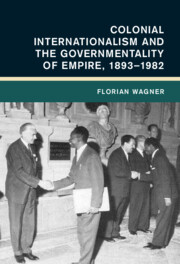This article examines the corruption scandal that exploded in 1889 with the apprehension of Arthur Crawford and the dismissal of several Mamlatdars in colonial western India. Using Ian Hacking's concept of “making up people” and the “looping effect,” this article demonstrates the instability of categories such as corruption and suggests that the everyday life of empire was undergirded by the colonial construction of deviancy to normalize the exceptionality of foreign rule. Additionally, the Crawford-Mamlatdar corruption scandal undercut the imperial ideology of the modernizing state. The corruption network revealed the simultaneity of imperial bureaucratic rationality along with the traditional patronage structures based on indigenous sexual and filial (caste) ties. It was precisely the British investigation that also revealed the reality of the homosocial empire and its privileging of caste recruitments. The Indian challenge to the case brought together rural and urban groups signalling the ascendance of a nationalistic solidarity. The Indians queried the imperial claims of moral superiority. At the same time, they acknowledged “native vulnerabilities” towards corruption, confirming the British stereotype of Indians as inherently corrupt. These selective claims, indicative of the emergence of upper caste, urban, and bourgeois notion of public virtue, signified the iterative nature of the “looping effect.”
